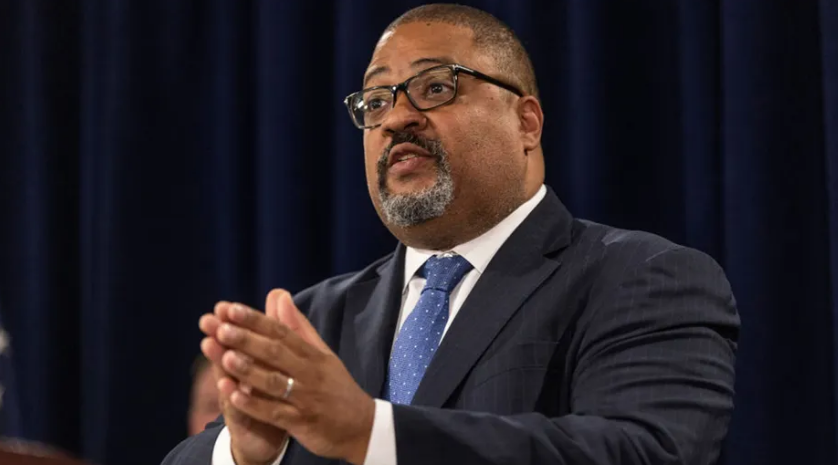New York District Attorney Alvin Bragg has proposed a 30-day postponement of the criminal trial against former President Donald Trump. The trial is currently scheduled to start in one week, on March 25. Bragg's assistant prosecutors have cited the need for more time to review recently disclosed records as the reason for the delay. It is yet to be seen how Judge Juan Merchan will respond to Bragg's request.
This delay has raised eyebrows among legal observers as it is yet another example of the peculiarities surrounding Bragg's case against Trump, which many have deemed as fundamentally unfair. The former president is facing a staggering 34 felony counts for what is essentially a misdemeanor offense of falsification of business records. Bragg has pursued this case despite the fact that the statute of limitations for such an offense in New York has long expired.
The misdemeanor offense in question involves the repayment of a $130,000 debt incurred by Trump's former lawyer Michael Cohen. This payment was made in 2017, while Trump was president, and was recorded in his books as payment for legal services. Under normal circumstances, this would not have been a problem, but Bragg is claiming that the payment was, in fact, an attempt to cover up a campaign finance violation.
It should be noted that the federal authorities, who have jurisdiction over campaign finance violations, did not see fit to prosecute Trump for this alleged offense. However, after Bragg's predecessor declined to prosecute due to a lack of evidence, Bragg himself decided to pursue the case. This decision prompted a mutiny among his subordinates, who had previously been uninterested in the matter.
The delay sought by Bragg is just the latest example of the prosecutorial misconduct that has plagued this case from the beginning. It has already been noted that Bragg's office failed to properly acquire and disclose relevant evidence to Trump's defense team. Just three weeks ago, the federal government provided 73,000 pages of relevant records to Trump's defense, a fact which causes suspicion about the diligence of Bragg's prosecution. Furthermore, it has been revealed that the SDNY, who previously conducted an investigation into the matter, will be producing an additional 31,000 pages of relevant records next week.
Bragg has attempted to justify the delay by arguing that Trump had previously agreed to several extensions sought by the SDNY. However, this does not absolve the district attorney's office of its obligation to ensure timely discovery to the defense. This responsibility is especially crucial given that the events in question occurred seven to eight years ago and that Bragg waited until the last possible moment to bring charges.
Bragg is also placing the blame on Trump's defense team for the discovery delay, claiming that they have not cooperated with the federal government in the past. However, it is Bragg's responsibility, as a prosecutor with authority to enforce federal law, to liaise with the federal authorities involved in the case. The fact that Trump was able to obtain a trove of documents from the SDNY while Bragg's office did not raises serious questions about the prosecutor's conduct.
It remains to be seen how Judge Merchan will respond to Bragg's request for a delay. However, given that the judge has previously been favorable to Bragg's case, it is unlikely that he will grant Trump's motion to dismiss based on discovery violations. Instead, it seems more likely that the judge will set a new trial date after the additional documents have been produced.
This delay, however, underscores the due process concerns surrounding Trump's multiple ongoing criminal cases. With four separate cases against him, the former president is facing a barrage of legal challenges that have left him with little time to prepare his defense. These cases, on charges ranging from felony election interference to RICO violations, have greatly limited Trump's ability to participate and present his defense, raising questions about whether he is receiving a fair trial.
Furthermore, it should be noted that the delays resulting from the voluminous discovery materials are just one aspect of the due process concerns surrounding Trump's cases. With trials scheduled for as soon as July, the former president has less than six months to prepare for three separate criminal trials. This begs the question of whether Trump is being given a reasonable opportunity to fully participate in his defense.

